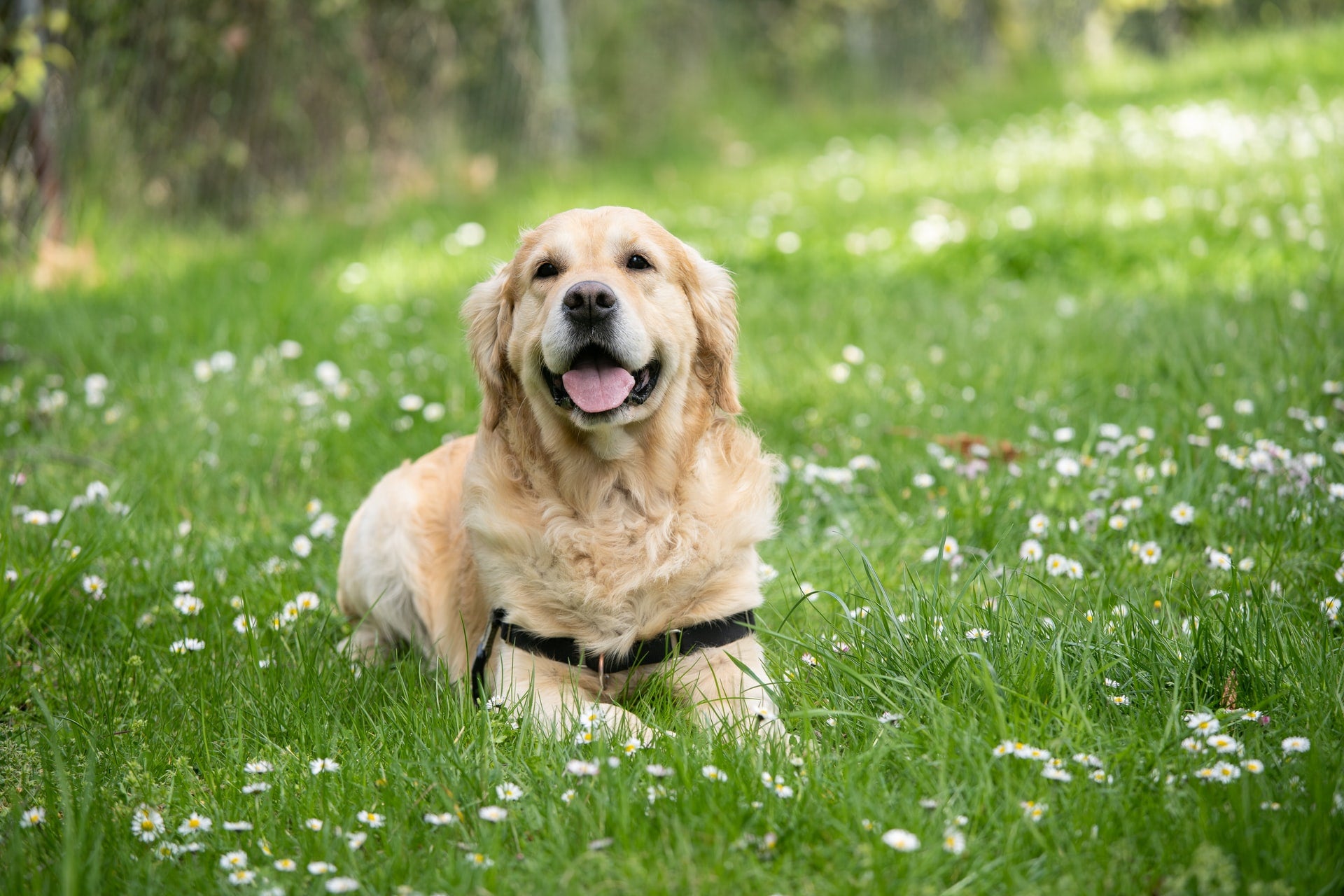Whether you like it or not, part of being a pet owner means familiarizing yourself with your dog’s bathroom habits. After all, what comes out of your dog’s body is a pretty good indicator of what’s going on inside his body.
You may already know how to tell if your dog’s poop is healthy, but what about his pee? If you notice strong odors or patches of dead grass scattered throughout your lawn, your pooch may need to start taking a supplement by the name of DL-methionine.
What is DL-Methionine?
DL-methionine supplementation in dogs has been studied since at least the 1940s (if not longer), and is considered to be a safe ingredient for our furry friends.
Simply put, DL-methionine is an essential amino acid—the building block of protein. You may be familiar with methionine, an amino acid found in fish, meat, and dairy products; DL-methionine is its synthetic counterpart.
This essential amino acid is important for your dog’s overall growth and development. However, because it doesn’t naturally occur in his body, it must be supplemented. It’s often found as an ingredient in commercial pet foods, treats, and products; it is also available on its own in the form of prescription tablets.
Benefits of DL-Methionine for Dogs
Due to its role in acidifying the urine, DL-methionine is typically used as a way to address and/or ward off bladder issues in dogs.
By modifying the pH level of your dog’s urine, DL-methionine can be helpful when it comes to:
- Addressing bladder infections
- Reducing the risk of kidney stones and bladder stones
- Reducing strong, unpleasant urine odors
- Reducing nitrogen amounts in urine, making it wreak less havoc on your lawn
Aside from the bladder-related benefits, DL-methionine also acts as an antioxidant, reducing the risk of various diseases. It can also help to minimize seasonal allergies and promote a healthy overall immune response.

DL-Methionine Precautions
As with any good thing, moderation is key. It’s also possible that what’s good for one dog may pose problems for another.
For example, DL-methionine should not be given to dogs with liver, pancreatic, or kidney issues. Puppies and pregnant or nursing dogs should also not take DL-methionine.
Some dogs—even the healthiest of the bunch—may experience side effects such as vomiting, diarrhea, or loss of appetite. As with any ingredient, it’s also possible that your dog could have an allergy to DL-methionine.
Your vet will be able to tell you if DL-methionine is a safe, healthy option for your dog. If you choose to start giving your dog DL-methionine supplements, be sure to monitor him closely for any adverse effects.
How to Give Your Dog DL-Methionine
If your vet confirms that DL-methionine supplementation is the right choice for your dog, he may prescribe it in the form of chewable tablets which can be taken as is or crumbled up and mixed into food. (If you’re picking out the product, be sure to purchase from a high-quality brand and manufacturer.)
Typically, dogs should take about half a tablet per 10 pounds of body weight each day. Of course, this can vary according to your dog’s weight and health. Too much DL-methionine can be dangerous or even life-threatening, so it’s absolutely crucial that you follow your vet’s recommendation.
Additionally, always be sure to keep your dog’s supplements stored in a safe, out-of-reach place.
Depending on your dog’s diet, it’s possible that he’s already getting sufficient amounts of DL-methionine through his food, treats, or other over-the-counter products.
If you want a healthy dog and a healthy lawn, try PetHonesty’s GrassGreen Chews. These tasty duck-flavored chews use enzymes and probiotics to promote healthy digestion and intestinal health; they also incorporate ingredients such as DL-methionine and apple cider vinegar to balance nitrogen levels in your dog’s urine, significantly reducing the number of yellow grass spots in your yard.
Sources:
https://wagwalking.com/treatment/dl-methionine
https://www.1800petmeds.com/DL+Methionine-prod10355.html
https://petkeen.com/dl-methionine-dogs-benefits-uses-effects/
https://www.petmd.com/pet-medication/dl-methionine
https://pubmed.ncbi.nlm.nih.gov/19871535/













